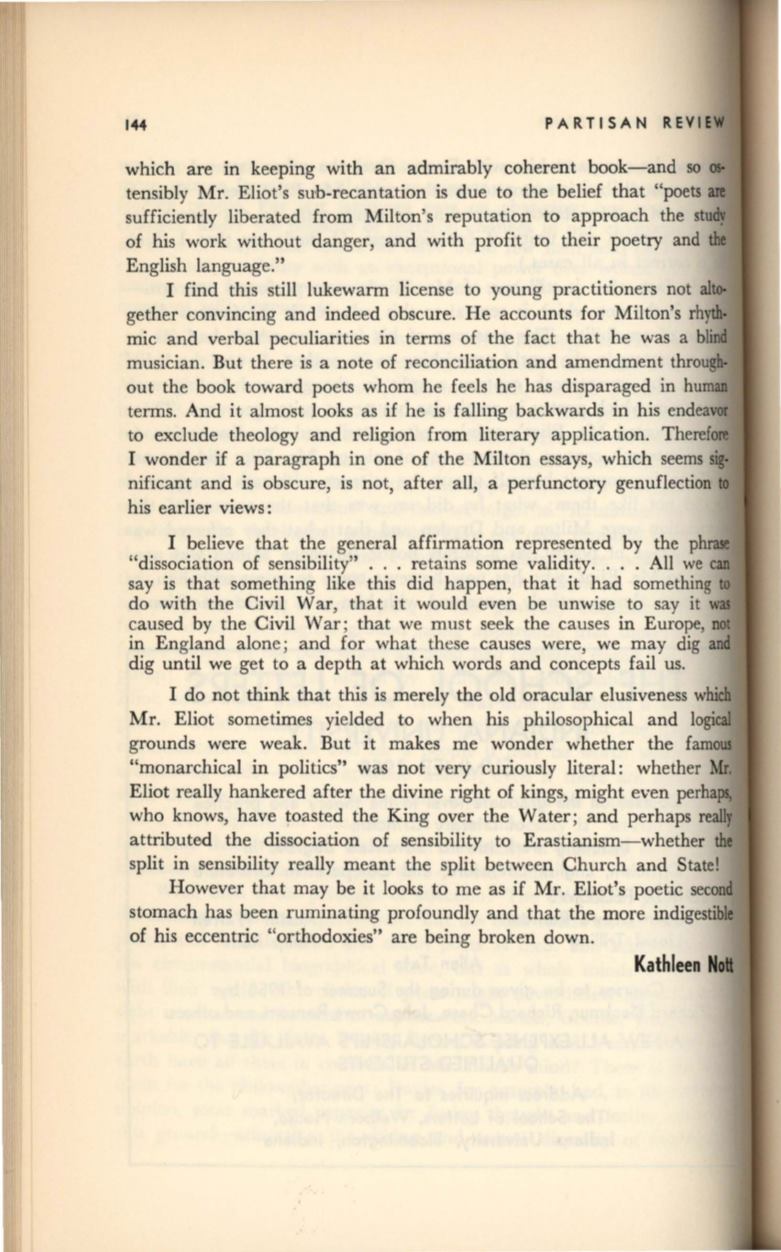
144
which are in keeping with an admirably
tensibly Mr. Eliot's sub-recantation is due to the belief that "poets
sufficiently liberated from Milton's reputation to approach the study
of his work without danger, and with profit to their poetry and
the
English language."
I find this still lukewarm license to young practitioners not
alto–
gether convincing and indeed obscure. He accounts for Milton's rhyth–
mic and verbal peculiarities in terms of the fact that he was a blind
musician. But there is a note of reconciliation and amendment through–
out the book toward poets whom he feels he has disparaged in humaa
terms. And it almost looks as if he is falling backwards in his endeavor
to exclude theology and religion from literary application. Therefore
I wonder if a paragraph in one of the Milton essays, which seems
sig–
nificant and is obscure, is not, after all, a perfunctory genuflection
to
his earlier views:
I believe that the general affirmation represented by the phrase
"dissociation of sensibility" ... retains some validity. . . . All we can
say is that something like this did happen, that it had something
do with the Civil War, that it would even be unwise to say it
was
caused by the Civil War ; that we must seek the causes in Europe, not
in England alone ; and for what these causes were, we may dig
and
dig until we get to a depth at which words and concepts fail us.
I do not think that this is merely the old oracular elusiveness which
Mr. Eliot sometimes yielded to when his philosophical and logical
grounds were weak. But it makes me wonder whether the famous
"monarchical in politics" was not very curiously literal: whether
Mr.
Eliot really hankered after the divine right of kings, might even perhaps,
who knows, have toasted the King over the Water; and perhaps really
attributed the dissociation of sensibility to Erastianism-whether
the
split in sensibility really meant the split between Church and State!
However that may be it looks to me as if Mr. Eliot's poetic second
stomach has been ruminating profoundly and that the more indigestible
of his eccentric "orthodoxies" are being broken down.
Kathleen Hott


